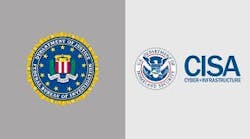Vice President Dick Cheney on Thursday defended the Bush administration's domestic surveillance program, saying it is an essential tool in monitoring al-Qaida and other terrorist organizations.
But Cheney stressed that the program was limited and conducted in a way that safeguarded civil liberties.
"A spirit of debate is now under way, and our message to the American people is clear and straightforward: These actions are within the president's authority and responsibility under the Constitution and laws, and these actions are vital to our security," Cheney said at the Manhattan Institute, a conservative think tank.
Four Democrats, in a letter to the vice president, asked that the administration consult with all members of the House and Senate intelligence committees on the program. The administration so far has restricted notification to just eight lawmakers, according to Senate Democratic leader Harry Reid of Nevada, House Democratic leader Nancy Pelosi of California and the top Democrats on the intelligence committees, Sen. Jay Rockefeller of West Virginia and Rep. Jane Harman of California.
Cheney said the surveillance program had addressed a concern of the Sept. 11 commission that the government had difficulty linking the activities of domestic and international terrorists.
"It's hard to think of any category of information that could be more important to the safety of the United States than international communication, one end of which we have reason to believe is related to al-Qaida," Cheney said.
President Bush has acknowledged that beginning in October 2001 he authorized the National Security Agency to eavesdrop on international phone calls and e-mails of people within the United States without seeking warrants from the courts.
The program has come under heavy criticism by congressional Democrats and civil libertarians and is now the focus of at least two federal lawsuits.
Cheney said Bush had reauthorized the program more than 30 times since 2001 and would continue to do so.
Also Thursday, Attorney General Alberto Gonzales sent congressional leaders a 42-page legal defense of warrantless eavesdropping, expanding on arguments that he and other administration officials have been making since the program was first disclosed last month.
The memo argues that Bush has authority to order the warrantless wiretapping under the Constitution and the post-Sept. 11 congressional resolution granting him broad power to fight terrorism.
Gonzales said the analysis was needed to counter critics of the program and show the public that "there's another side to this debate."
Cheney did not directly address an audio tape aired Thursday by Al-Jazeera in which a voice, determined by the CIA to be that of Osama bin Laden, said al-Qaida planned further attacks on the United States. But he said it was "more than obvious" the nation faced continued terrorist threats.
"The enemy that struck on 9/11 is weakened, fractured, but still lethal and still determined to hit us again," he said. "Either we are serious about fighting this war on terror or we are not."


